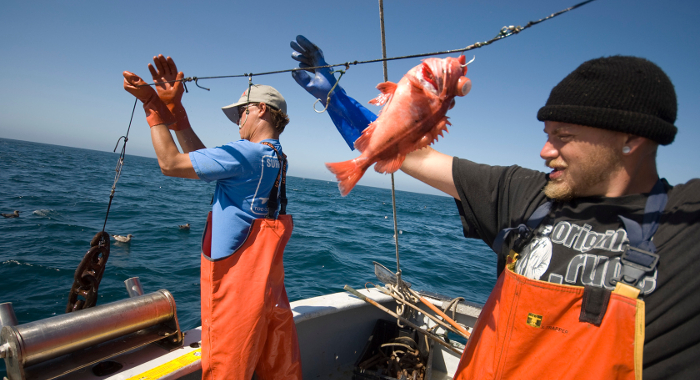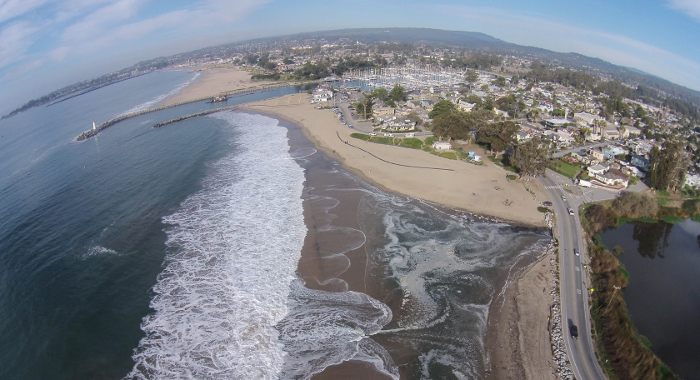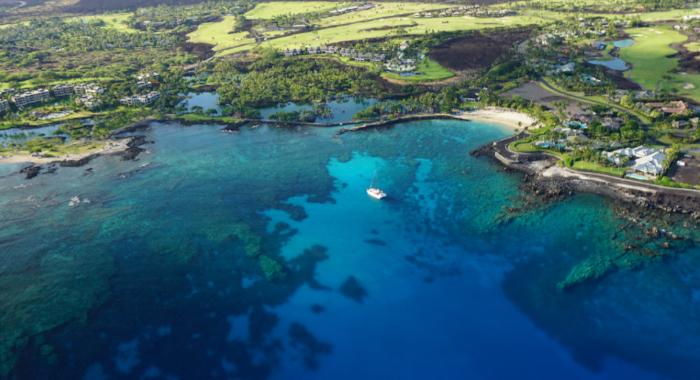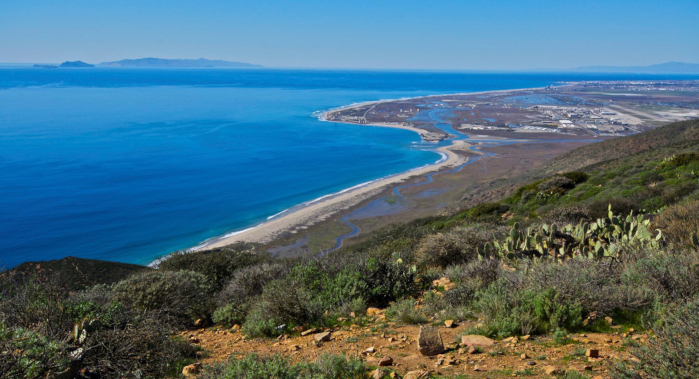The California Current is one of only four temperate upwelling systems in the world. Seasonal upwelling of nutrient-rich waters fuels a highly productive ecosystem, supporting biodiversity and fisheries that, along with coastal tourism, are a foundation of California’s economy.
Yet California’s coasts and oceans are also under increasing threat. Relatively few fisheries are managed based on robust scientific assessments, and more needs to be done to avoid overfishing and reduce bycatch. Plastics and other pollutants are pervasive. Climate change compounds these challenges. Ocean chemistry is changing. Sea levels and temperatures are rising – threatening important resources, biodiversity, and human populations.
Fortunately, the coastal and ocean ecosystems of California are bolstered by a network of marine protected areas and some of the most science-based marine policies in the world. Conservancy scientists look to build on those foundations by applying science and technology to enhance resilience of marine resources in the face of emerging threats.




Walter Heady, Ross P. Clark, Kevin O’Connor, Cara Clark, Charles Endris, Sierra Ryan, Sara Stoner-Duncan
Connecting marine, freshwater and terrestrial ecosystems, bar-built estuaries are complex and dynamic coastal confluences that provide a great diversity of habitat and ecosystem services. The wetland…The Nature Conservancy, Jono Wilson
There are thousands of fisheries around the globe that lack the infrastructure, capacity, resources and management techniques to perform conventional assessments and management. We know that fisheries…Juliano Calil, Michael W. Beck, Mary Gleason, Matthew Merrifield, Kirk Klausmeyer, Sarah Newkirk
The U.S. National Flood Insurance Program has paid out more than $38 billion in claims since its inception in 1968, more than a third of which has gone to the 1% of policies that experienced multiple,…Brent B. Hughes, Matthew D. Levey, Monique C. Fountain, Aaron B. Carlisle, Francisco P. Chavez, Mary G. Gleason
This comprehensive study of a major California estuary documents the links between nutrient runoff from coastal land use, the health of the estuary as a nursery for young fish, and the abundance of…Doak, D.F., G.K. Himes Boor, V.J. Bakker, W.F. Morris, A. Louthan, S.A. Morrison, A. Stanley, L. Crowder
One of the key components of a recovery plan for a threatened or endangered species in the United States is the set of recovery criteria that will be used to evaluate progress in abating the threats…Walter N. Heady, Kevin O'Connor, Jennifer Kassakian , Kate Doiron, Charles Endris, Daniel Hudgens, Ross P. Clark , Jena Carter , Mary G. Gleason
Estuaries are some of the most productive ecosystems on the planet. This inventory classifies more than 600 coastal confluences on the West Coast of the United States. Each estuary was classified…Brent B. Hughes, Matthew D. Levey, Jennifer A. Brown, Monique C. Fountain, Aaron B. Carlisle, Steven Y. Litvin, Correigh M. Greene, Walter N. Heady, Mary G. Gleason
Estuaries support significant biodiversity and important ecosystem functions such as providing rearing habitat for juvenile fish and invertebrates. This report synthesizes the scientific…Michelle D Staudinger, Shawn L Carter, Molly S Cross, Natalie S Dubois, J Emmett Duffy, Carolyn Enquist, Roger Griffis, Jessica J Hellmann, Joshua J Lawler, John O'Leary, Scott A Morrison, Lesley Sneddon, Bruce A Stein, Laura M Thompson, Woody Turner
This paper synthesizes research pertaining to climate change impacts on biodiversity, reviewed by the biodiversity technical working group of the 2014 National Climate Assessment. The paper focuses on…Gleason M, Feller EM, Merrifield M, Copps S, Fujita R, Bell M, Rienecke S, Cook C
On the Central Coast of California, The Nature Conservancy, Environmental Defense Fund, local fishers and local, state, and federal authorities worked collaboratively to protect large areas of the…Darci Palmquist, Mary Gleason, Matt Merrifield
Emily Saarman, Mary Gleason, John Ugoretz, Satie Airamé, Mark Carr, Evan Fox, Adam Frimodig, Tom Mason, Jason Vasques
This paper explores four key conditions that supported the successful integration of science into the Marine Protected Area network planning effort in California. The redesigned statewide network of…Mary Gleason, Evan Fox, Susan Ashcraft, Jason Vasques, Elizabeth Whiteman, Paulo Serpa, Emily Saarman, Meg Caldwell, Adam Frimodig, Melissa Miller-Henson, John Kirlin, Becky Ota, Elizabeth Pope, Mike Weber, Ken Wiseman
This paper reviews the design of a network of marine protected areas (MPAs) in state waters as mandated by the Marine Life Protection Act (MLPA). A public–private partnership (the MLPA…Evan Fox, Melissa Miller-Henson, John Ugoretz, Mike Weber, Mary Gleason, John Kirlin, Meg Caldwell, Sonke Mastrup
In California, after two unsuccessful attempts, statewide planning of a network of marine protected areas (MPA) was achieved through the California Marine Life Protection Act (MLPA) Initiative. This…John Kirlin, Meg Caldwell, Mary Gleason, Mike Weber, John Ugoretz, Evan Fox, Melissa Miller-Henson
This paper reviews how recommendations developed through the Marine Life Protection Act (MLPA) Initiative supported regulatory decisions by the California Fish and Game Commission to greatly expand…